I’ve tested the top organic comforter and duvet inserts and have created my guide to help you find the best one! These nontoxic options are made in the USA with organic, natural materials without the use of synthetic chemicals. Keep reading to learn why I switched to a healthy comforter and an in-depth comparison of each organic bedding brand.
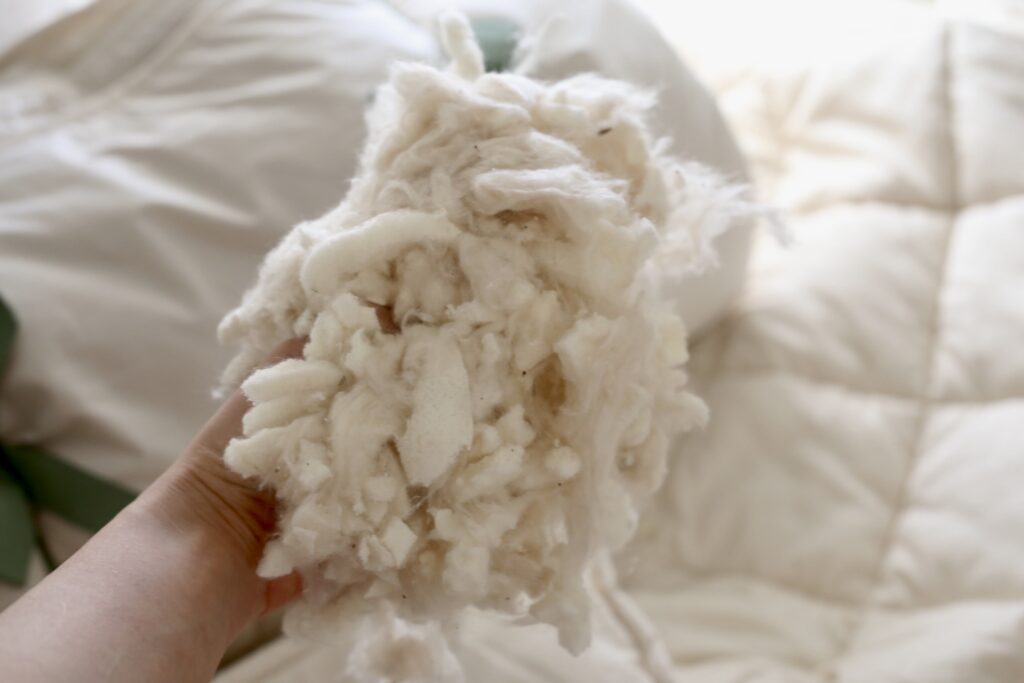
Toxins to Avoid in Comforters
Not all “natural bedding” is created equal and many companies practice greenwashing to make you think they don’t use any harmful chemicals. These are the most common toxins that comforters can be treated with during any point of the manufacturing process.
Formaldehyde: Formaldehyde is often used to reduce wrinkles and prevent mildew in bedding. It’s a known irritant to the respiratory system and skin, and long-term exposure has been linked to cancer.
Flame Retardants: Duvets can be treated with flame retardant chemicals to meet safety standards. Flame retardants, especially those in the PBDE (polybrominated diphenyl ethers) family, have been associated with hormone disruption, neurodevelopmental issues in children, and even cancer. Plus, some of these can accumulate in the body over time.
Perfluorinated Compounds (PFCs): These are sometimes used to make fabrics stain-resistant and can sometimes be found in the outer shell of duvets. PFCs are linked to liver damage, developmental issues, and immune system suppression.
Pesticide Residues: Cotton is often heavily treated with pesticides and can remain in duvets. These can irritate the skin and respiratory system, and some chemicals have been linked to cancer, reproductive issues, and hormone disruption.
Volatile Organic Compounds (VOCs): VOCs are emitted from some materials, especially synthetic ones, such as polyester and certain foam fillings. They can also come from finishes used in manufacturing. Exposure to high levels of VOCs can cause headaches, dizziness, nausea, and respiratory irritation. Long-term exposure may contribute to more serious issues, including liver damage and central nervous system effects.
Antimicrobial and Anti-Microbial Chemicals: Some duvets are treated with antimicrobial agents like triclosan to reduce bacteria, mold, or dust mites. Triclosan has been associated with hormone disruption and the development of antibiotic-resistant bacteria.
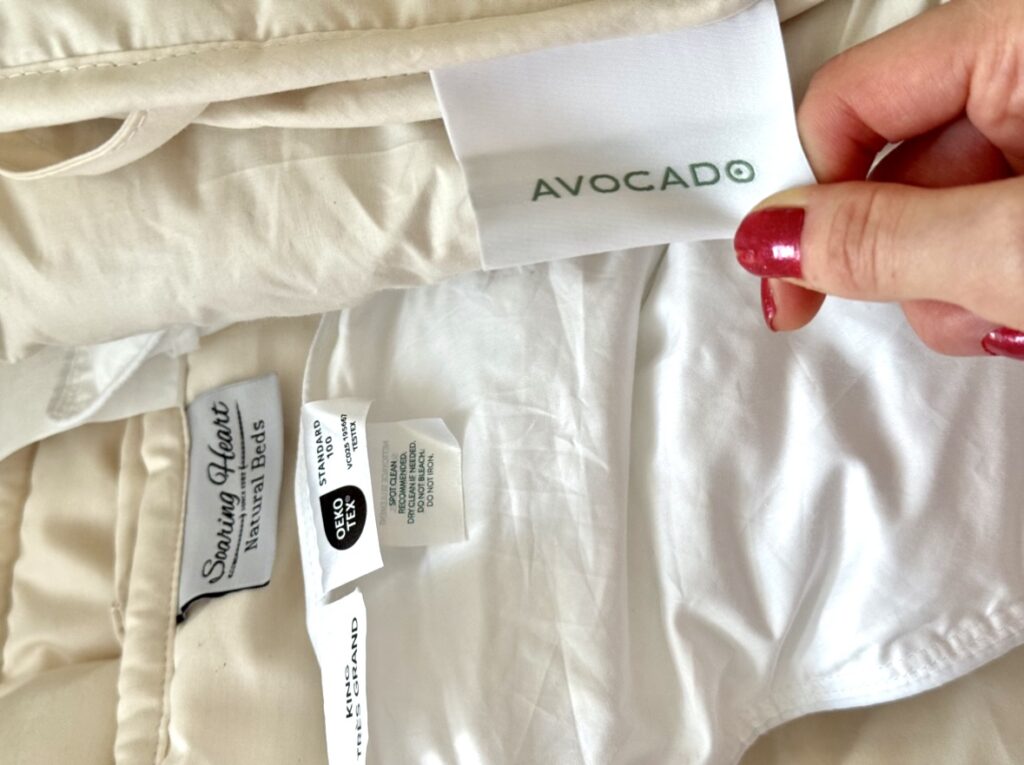
How to find the best organic comforter or duvet
When looking for the best non toxic comforter, look for third party certifications. This means their product has gone through a rigorous evaluation process to ensure their claims can be backed.
- GOTS (Global Organic Textile Standard): 95% of the materials are certified organic
- Oeko-Tex Standard 100: means the product is free of 100 commonly used toxic substances and allergens
- UL GREENGUARD: does not emit VOCs at a harmful level
- Fair Trade Certified: means the company uses factories have safe working conditions
- Responsible Down Standard (RDS): ensures humane animal treatment
- DOWNMARK: product has been made using ethical down only
Natural materials used
- Organic Cotton: This is one of the most popular materials for organic duvets since it’s sooo breathable, soft, and hypoallergenic.
- Organic Wool: wool is naturally insulating, moisture-wicking, temperature-regulating and breathable. It also naturally resists dust mites, mold, and mildew, making it a great option for those with allergies. Wool is a great biodegradable and renewable option since sheep grow new fleece every year! I find the high-end brands use organic alpaca wool, which has feel more similar to cashmere.
- Down (from Certified Organic Sources): Down is super lightweight yet lofty and great at trapping warmth. Look for ethically sourced and Responsible Down Standard certified. These ensure the down is sourced from ducks and geese that are treated humanely, from certified farms with chain-of-custody, and a by-product of the food industry. It feels like cloud-like warmth.
- Organic Bamboo: Bamboo is super soft, breathable, naturally resistant to bacteria, hypoallergenic and great for hot sleepers.
- Hemp: Hemp is durable, breathable, antimicrobial and requires no pesticides or synthetic chemicals to grow.
- Silk: Silk is often used in high-end organic duvets. It’s incredibly soft and lightweight, hypoallergenic, naturally moisture-wicking and it provides excellent temperature regulation. While the production of silk can be less sustainable depending on the process, organic silk produced using ethical practices can be a good choice for eco-conscious consumers.
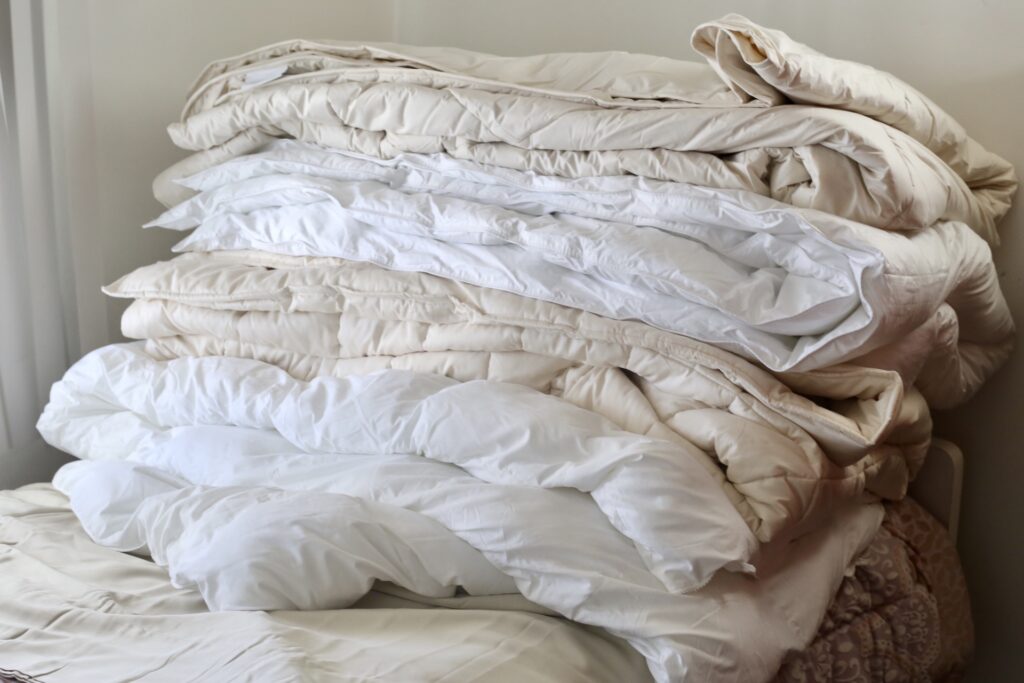
Best Organic Bed Comforters Compared
I tried Avocado Alpaca Duvet Insert
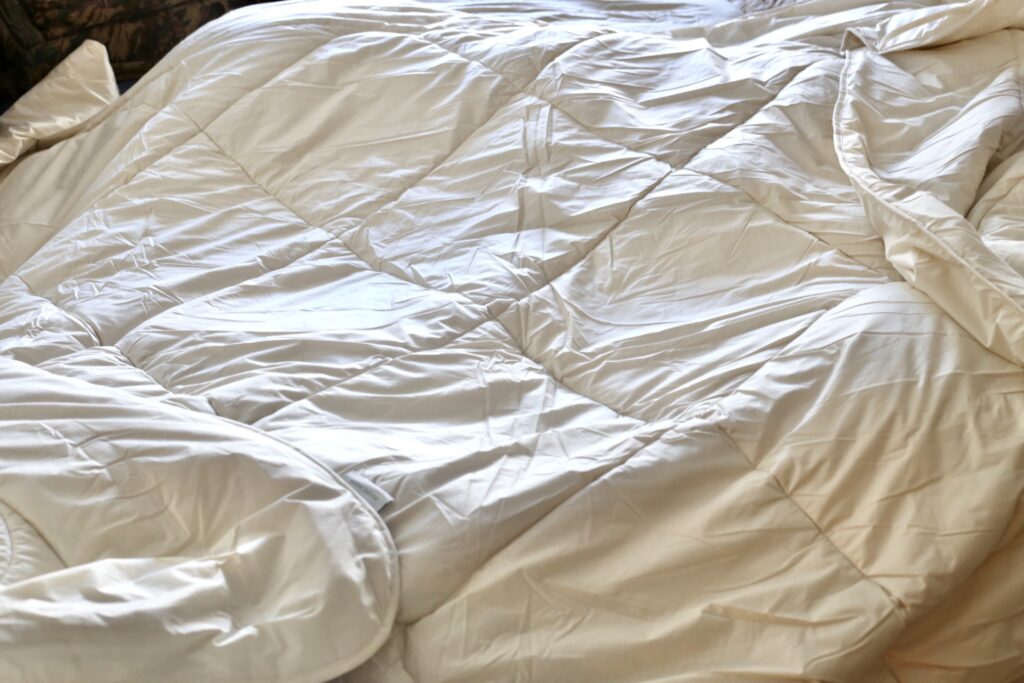
When I first tried Avocado’s Alpaca Duvet I was initially put off by the slight smell, which took about a week or so to fade away (it’s spot clean only and non-washable). But I can tell the quality of the materials they use is high and it’s well stitched and constructed. Their duvet has got a GOTS-certified organic cotton percale case with natural alpaca fiber. It comes in two weights – all season and lightweight. I use the lightweight fill so mine feels light and thin, which works through spring, fall and summer but during the winter I need to switch to a warmer duvet. Avocado holds so many certifications and is a brand I trust wholeheartedly. I’ve found the quality of their products consistently high and have purchased a variety of bedding products from them over the years.
Price: $339-$579
How it feels: light
Types available: Down, Alpaca, Silk
✔ GOTS-certified organic cotton ✔ Responsible Down Standard certified (down) ✔ Certified B Corp ✔ Climate Neutral Certified ✔ MADE SAFE certified ✔ gives back via 1% for the Planet
I tried Soaring Heart Organic Quilted Cotton Comforter
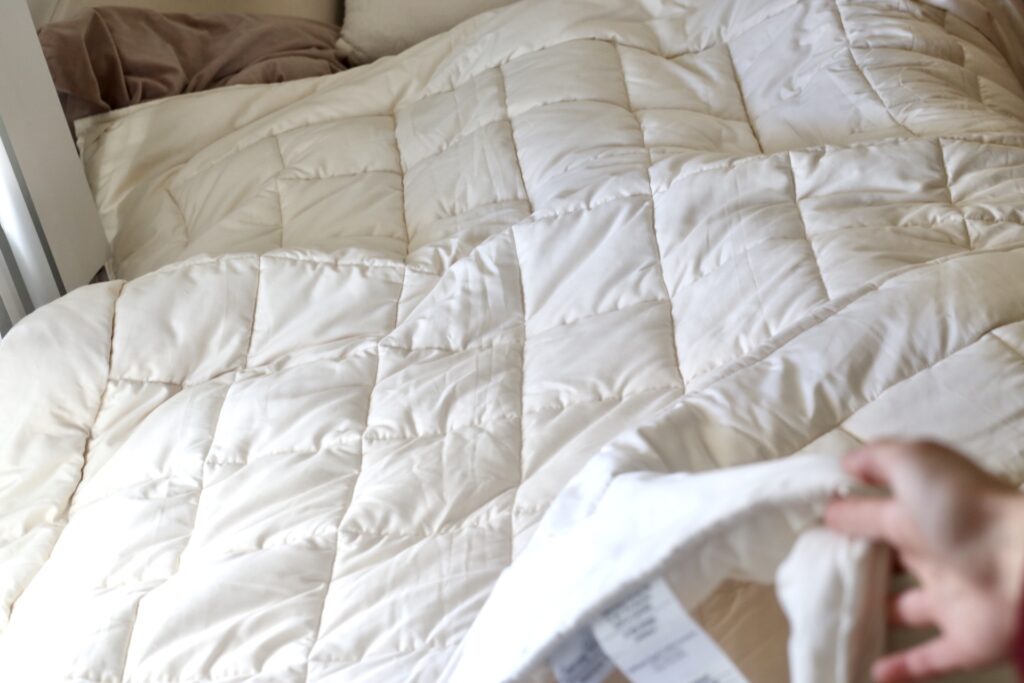
I was immediately blown away by Soaring Heart’s craftsmanship and baffle box stitch construction when I tried their Organic Cotton Comforter. I’ve found their products take longer to ship out than other companies, but it’s reassuring to know they place extra care and attention in each product. Their quilted cotton comforter is beautiful, sturdy and hefty enough to be used without a cover, which is actually the nice thing about comforters versus duvets. I do protect it though because I want to keep it pristine for as long as possible. I find it to have medium thickness – not the thinest nor thickest I’ve tried. It’s somewhat lofty and thick enough to keep me warm through winter.
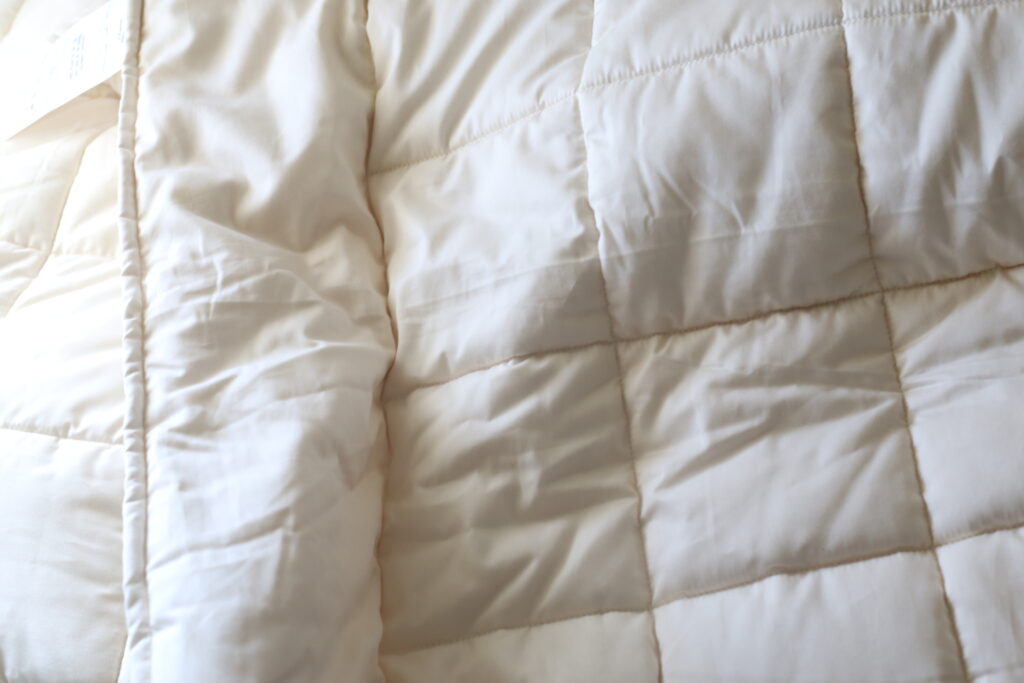
Price: $145-$380
How it feels: lofty and warm
Types available: Organic Quilted Cotton, Alpaca and Wool, Certified Organic Wool
✔ Handmade in the USA ✔ Gives back 1% of annual gross ✔ GOTS-certified organic cotton from the Texas Organic Cotton Marketing Coop ✔ GOLS (Global Organic Latex Standard) certified Dunlap processed latex
Use OBL for 5% off
Shop Here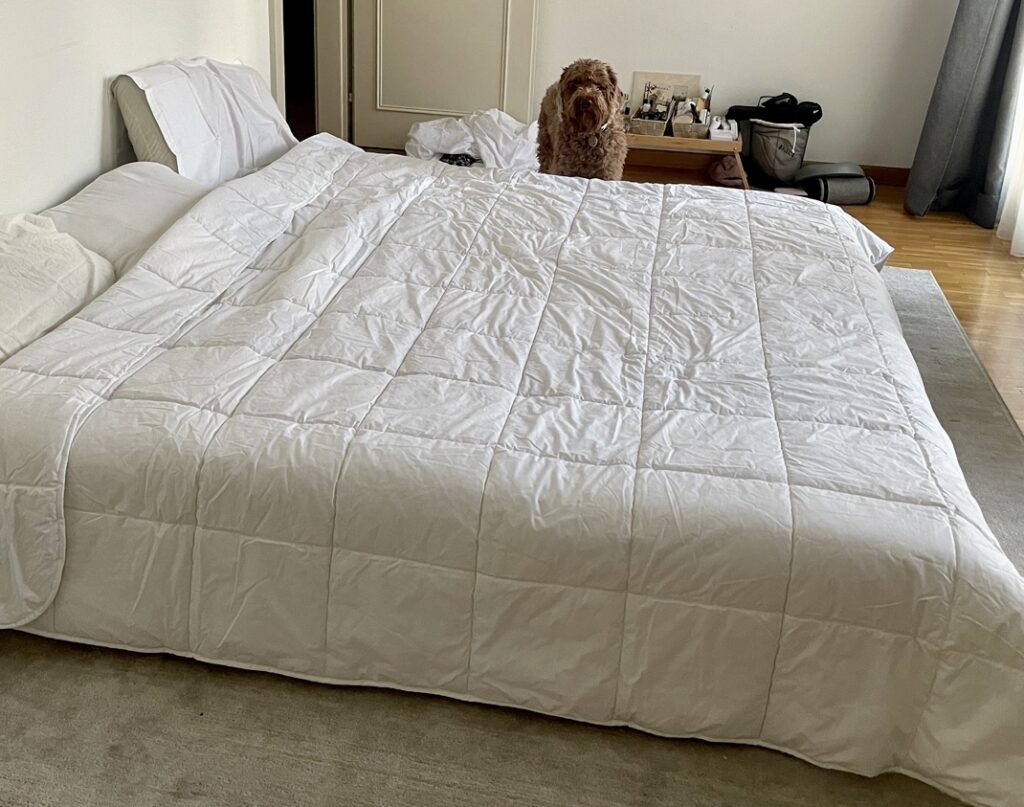
I tried Antipodean Home Organic Regenerative Wool Comforter
I find Antipodean’s duvet to feel very light, thin and breathable, but it’s also great at trapping heat. I would definitely say it feels thinner than other organic duvets I’ve tried. Antipodean Home’s organic wool duvet uses regenerative New Zealand merino wool from farmers that use low-impact, regenerative methods to enhance the land’s natural functions, which in turn, restores the soil’s vitality to produce the purest fibers possible. It’s woven with a layer of tiny air pockets that create breathable air flow between you and the sheets, wicking away heat and humidity. This helps keep you at a comfortable temperature throughout the night instead of building up heat and moisture, causing you to wake up multiple times.
Price: $380-$450
How it feels: extremely lightweight yet insulating
Types available: Organic wool
✔ GOTS-certified organic cotton
Use OBL for 20% off
I tried Cozy Earth Down Alternative Comforter (luxe!)
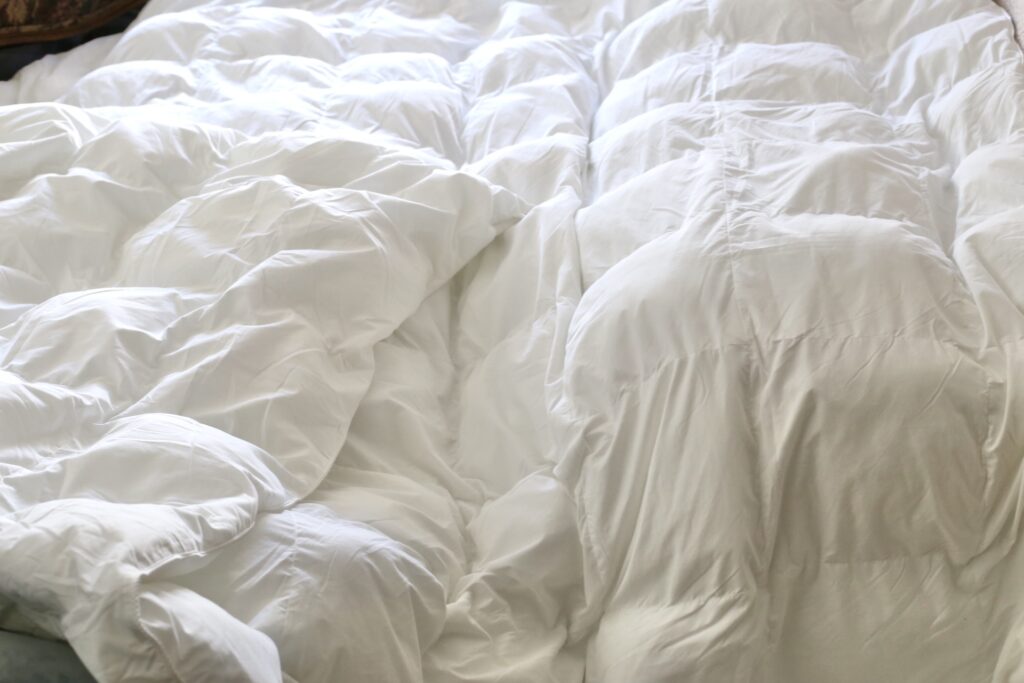
When I first tried Cozy Earth’s comforter I was blown away by how lofty yet light and airy it was. It makes so much sense since it’s the closest dupe to down I’ve tried. I love the puffiness and cloud-like warmth of it yet it still feels sooo breathable. This one is my family’s personal favorite (and of course it also happens to be the most expensive comforter I’ve tried). It really is very comfy and the baffle boxed stitch construction is top tier. Compared to Brooklinen’s Down Comforter, this down alternative one is loftier and feels more luxurious. Cozy Earth also offers a 100% bamboo viscose comforter and silk comforter but they don’t offer different fill weights.
Price: $399-$529
How it feels: lofty and fluffy
Types available: Down Alternative, Bamboo Viscose, Silk
Use CE-ORGANIC for 40% off
Shop HereI tried Brooklinen Down Comforter
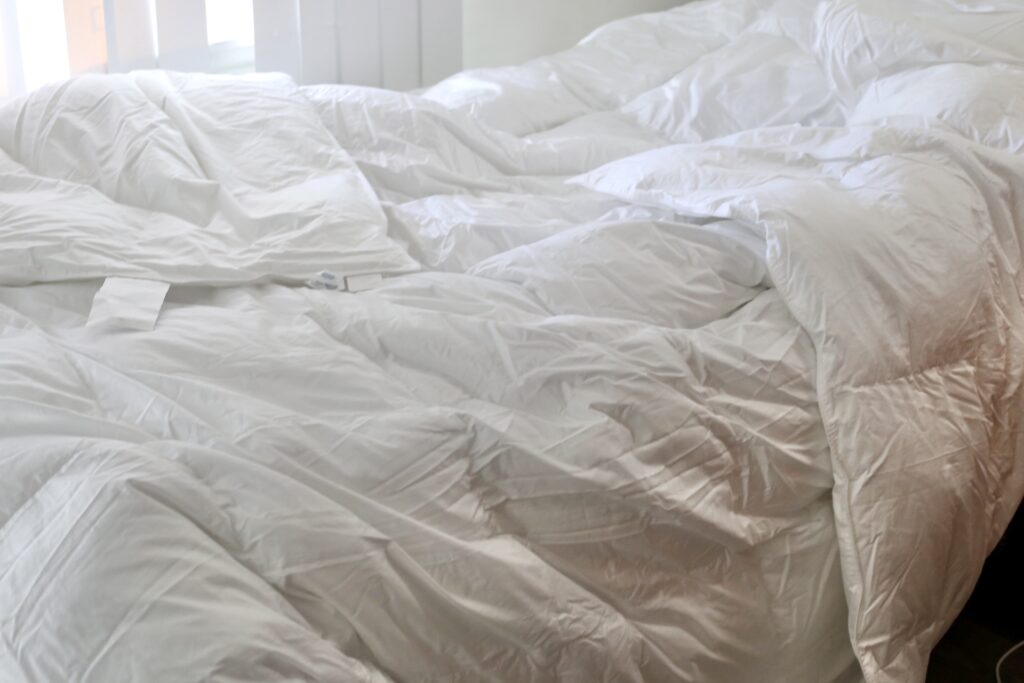
I tried Brooklinen’s Down Comforter which doesn’t use a down alternative but is DOWNMARK certified. This means the product has been made using ethical down only. It’s also OEKO TEX certified (but not organic). Mine is the “all season” fill and feels sooo fluffy, light and airy and happens to also be the most affordable option I’ve tried. This is the only bedding brand I’ve seen that offers 3 types of weights: lightweight, all season and ultra warm. I find Brooklinen’s all season fill to be on the light and airy end, so if you prefer a warmer comforter then I recommend going with the “Ultra warm” fill.
Price: $159-$359
How it feels: light and fluffy
Types available: Down, Down Alternative and Weighted
✔ OEKO-TEX® Certified ✔ DOWNMARK® Certified (down comforter) ✔ Hypoallergenic Recycled Polyethylene Terephthalate (R.P.E.T.) microfiber fill (down alternative) ✔ Baffle box construction ✔ 3 warmth levels
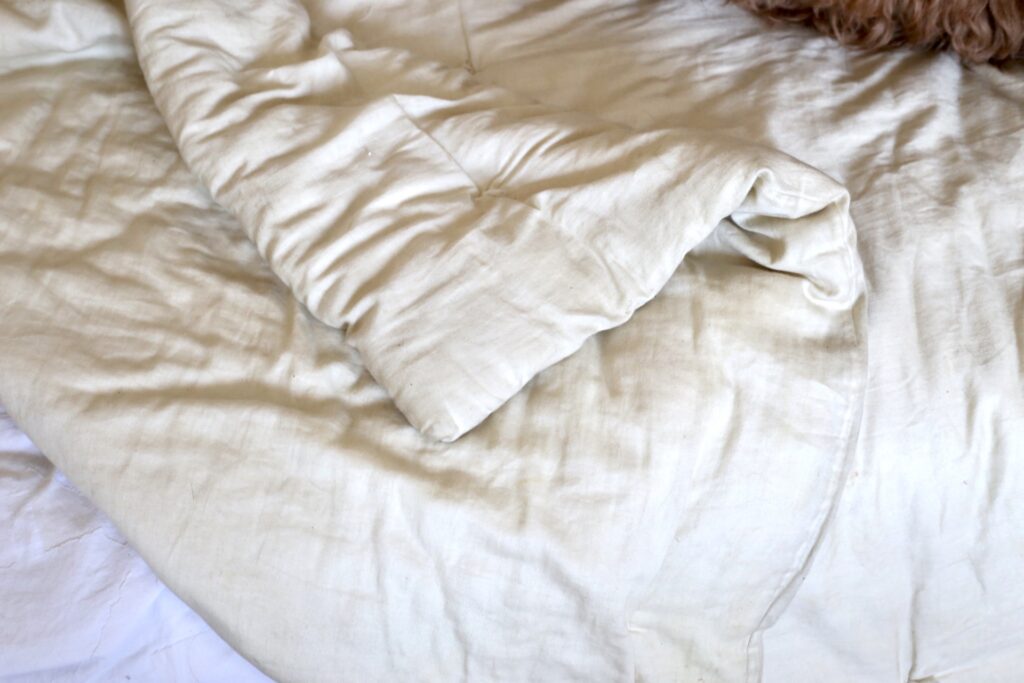
I tried White Lotus Home Organic Cotton Duvet
White Lotus Home’s organic cotton duvet was the first one I ever tried several years ago and I still use it to this day. It’s a thick, extra warm type of duvet that’s great for cold months or people who run cold at night. My only qualm is that I got the non-washable one because the GOTS Organic Cotton duvet doesn’t come in any other option. For the most part I’ve been able to keep it clean and have spot cleaned areas that got dirty. This is a very heavy duty and hefty duvet.
Price: $168-$585
How it feels: heavy duty and extra warm
Types available: GOTS Organic Cotton (non-washable), GOTS Wool (non-washable), Wool (washable and non-washable options)
✔ Handmade in the USA ✔ GOTS-certified organic cotton
Use OBL for 20% off
Read the latest!
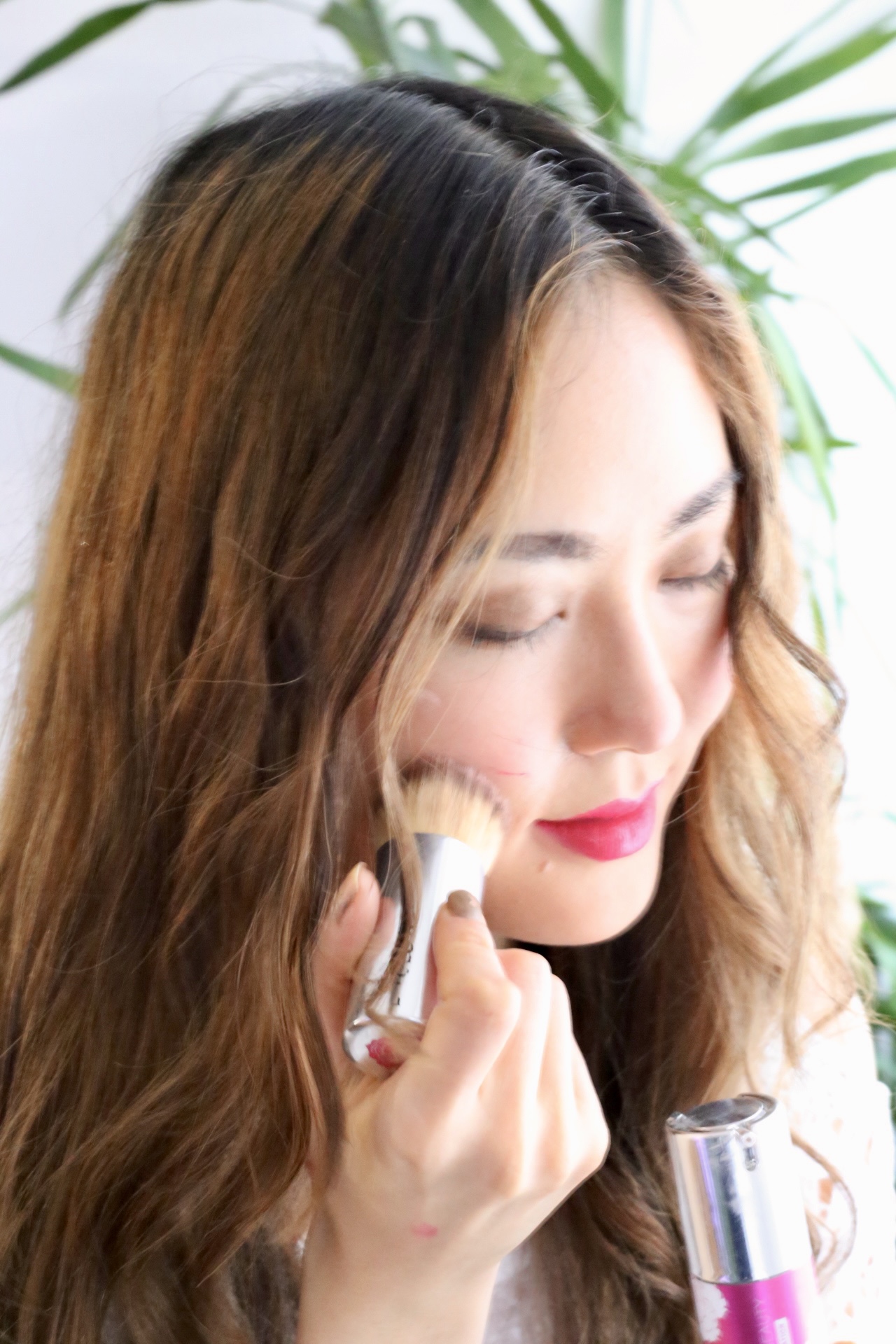
Andrea is a clean beauty expert from Los Angeles, California with 10 years of experience in natural skincare and organic living. She writes for Organic Beauty Lover using her expertise to guide readers in choosing the best clean products. Andrea graduated from the University of Southern California in 2012 and has worked at multiple skincare companies, big and small. Connect with her @organicbeautylover.

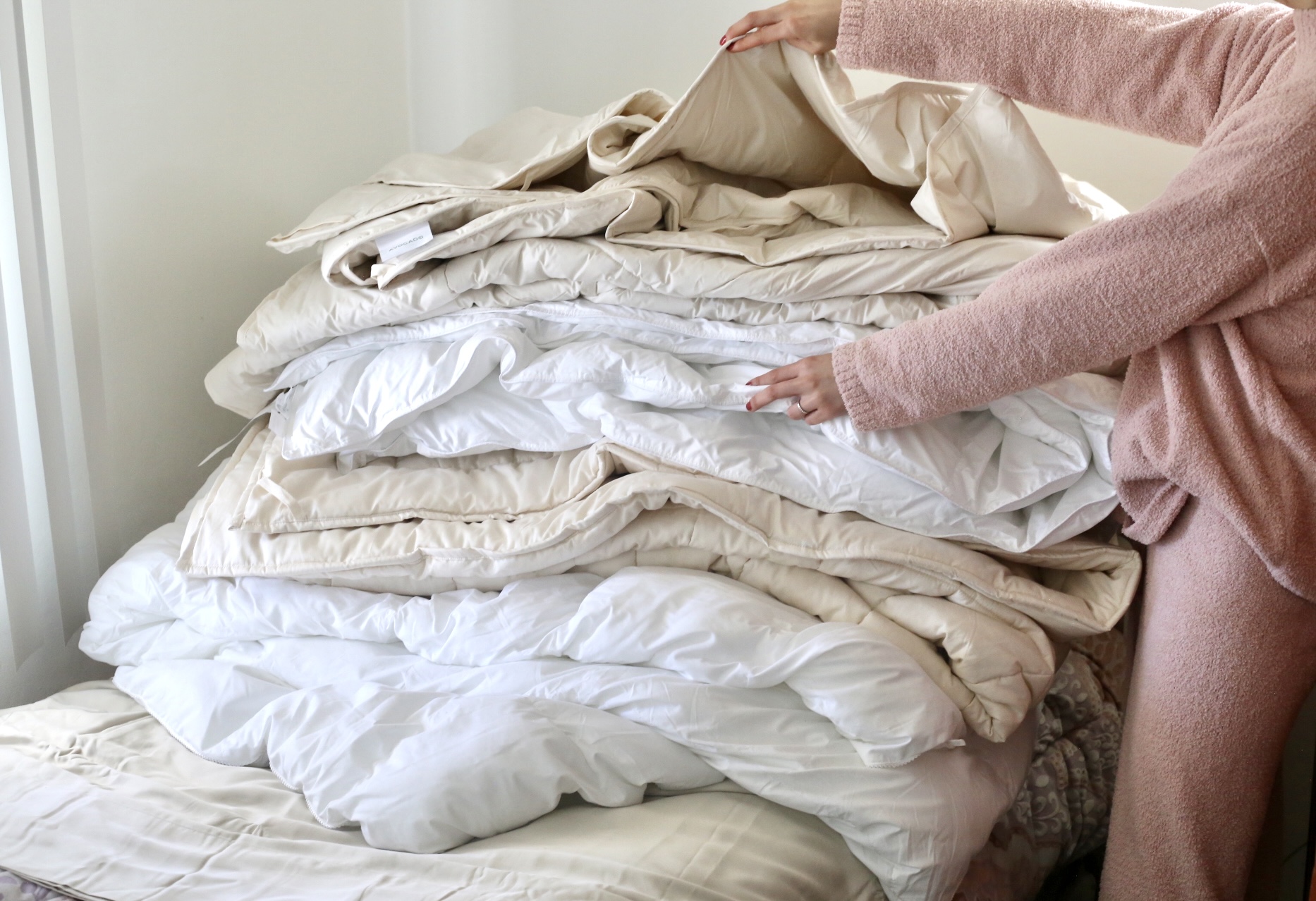
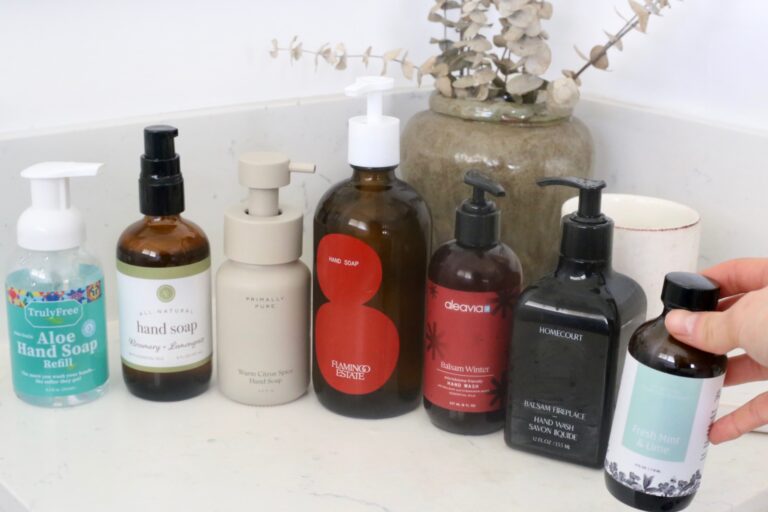
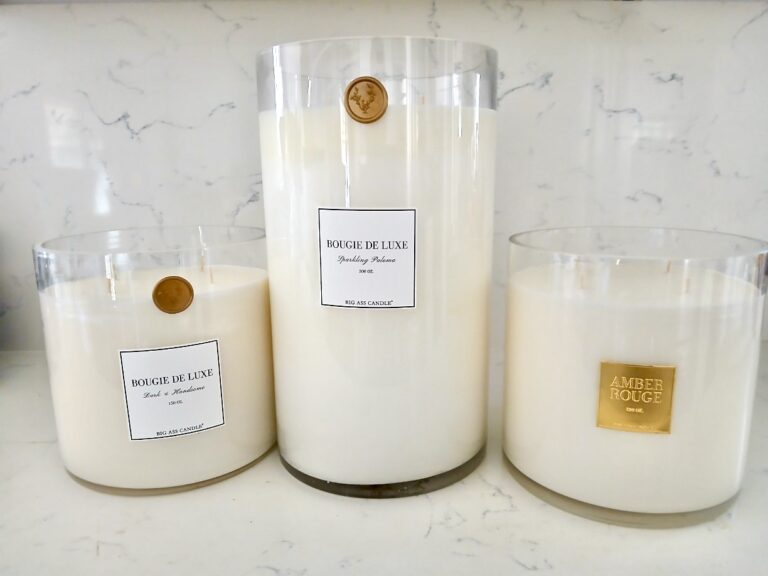
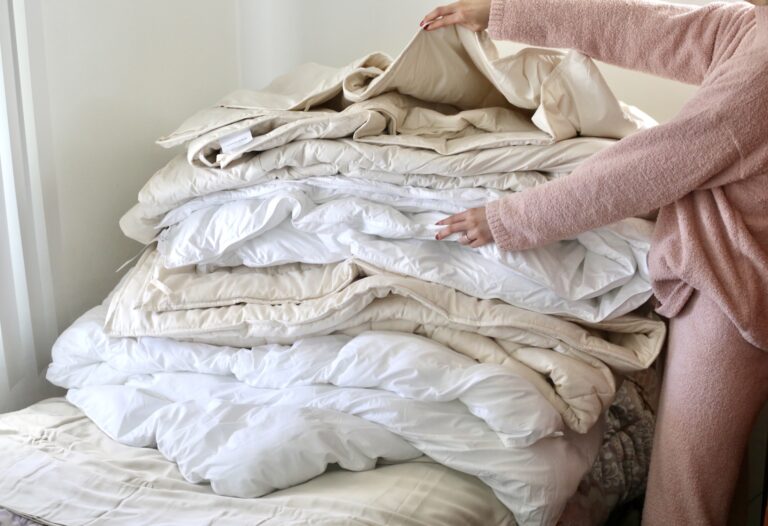
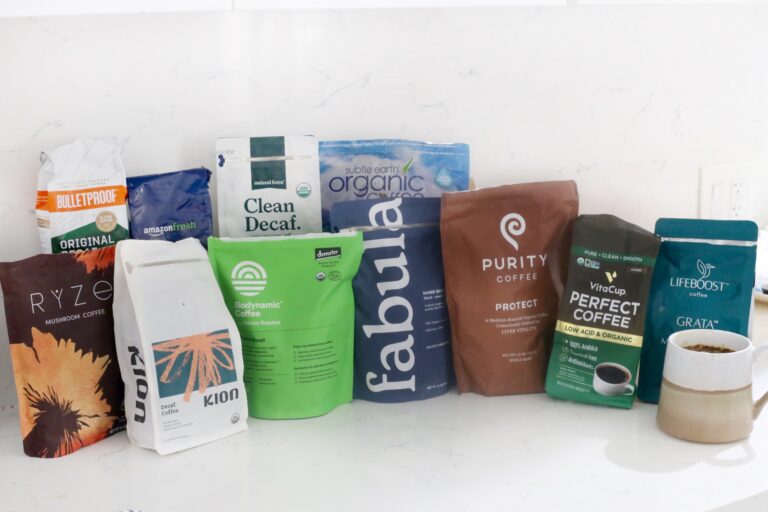

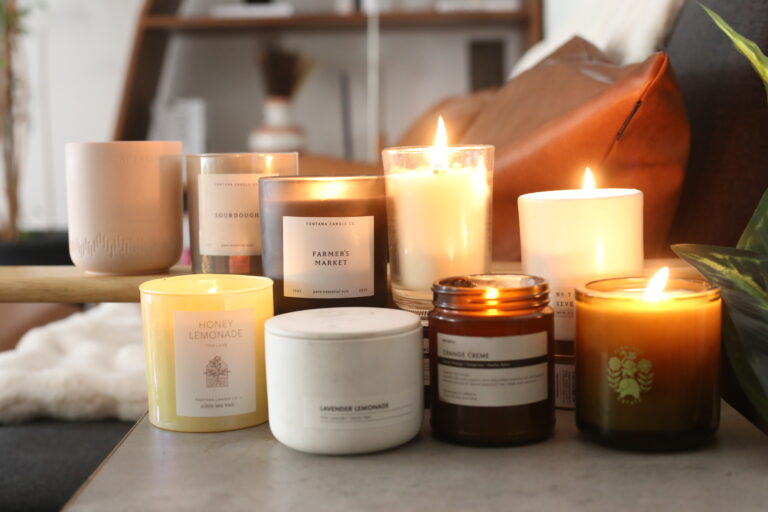
Leave a Reply